G20 Leaders’ Summit 2015 in Turkey
Akshay Mathur, Director of Research, Gateway House, attended the Think Tank (Think 20) Summit in Antalya, Turkey. He comments on the Turkish presidency and India's contribution to the G20.
 Courtesy:
Courtesy:
Akshay Mathur, Director of Research, Gateway House, attended the Think Tank (Think 20) Summit in Antalya, Turkey. He comments on the Turkish presidency and India's contribution to the G20.
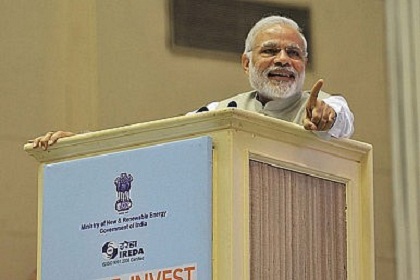 Courtesy: Narendra Modi official
Courtesy: Narendra Modi official
Prime Minister Narendra Modi’s initiatives like the Make in India campaign, Digital India, Skill India, Smart Cities, et al, are all designed to attract much needed foreign capital into the country. However, a lot of global investors are still sitting on the fence. PM Modi, thus, must use the G20 Summit to assure investors and countries that India is open for business.
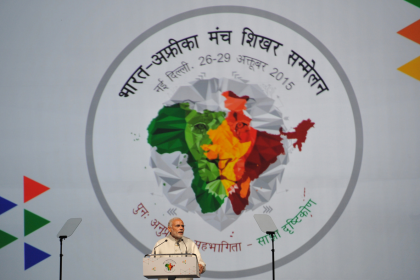 Courtesy: MEA / Flickr
Courtesy: MEA / Flickr
Changes in how India plans to approach its relationship with Africa were evident at the recent India-Africa Forum Summit, including the wider representation of African countries, and Modi’s push to forge a united front with Africa at multilateral institutions on trade and other issues. But beyond these, gaps in the India-Africa alliance remain to be addressed.
 Courtesy:
Courtesy:
Designed by Debarpan Das This infographic was exclusively created for Gateway House: Indian Council on Global Relations. You can read more exclusive content here. For interview requests with the author, or for permission to republish, please contact outreach@gatewayhouse.in. © Read more
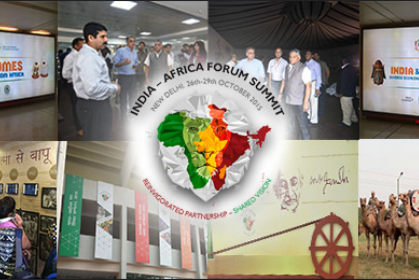 Courtesy: MEA / Flickr
Courtesy: MEA / Flickr
The India-Africa Forum Summit in New Delhi this week has not generated much excitement among African media, academia, and think tanks. But it will be useful for the African bloc to have a strategic game-plan about the Africa-India relationship of the future, across such areas as trade and public health
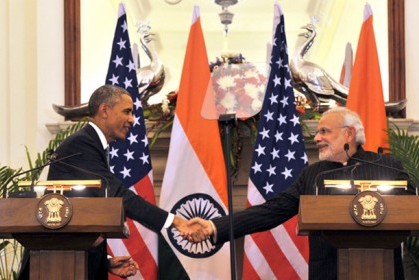 Courtesy: Wikipedia
Courtesy: Wikipedia
Modi’s second visit to the U.S. in September indicates a growing partnership in such areas as business, technology, and climate change. Though gaps too remain—for example, India is not part of the TPP and its bid for a UNSC seat is on hold—for now, it is time to consolidate bilateral meeting points, and India can start by simplifying its trade policy and tariff structure
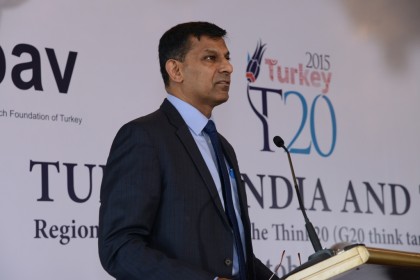 Courtesy: Gateway House
Courtesy: Gateway House
Dr. Raghuram Rajan, Governor, Reserve Bank of India, delivered the keynote address at India's first Think20 (T20) meeting organised by Gateway House with TEPAV, on the "Global Economy and Challenges for Multilateral Policies." He urged emerging markets like India to develop their own capacity to provide new ideas to the global financial system, “hold the pen” that will write a more inclusive agenda, and strengthen global multilateral institutions.
Do the TPP and the proposed India-EU trade deal extend protection of IPR, delaying generic competition for life-saving drugs and keeping their prices high? While these and other possible implications for Indian consumers and pharma companies become clearer over time, India must robustly engage with the debate on trade deals and public interest
 Courtesy: Wikipedia
Courtesy: Wikipedia
Although it is too soon to comprehensively analyse the Trans-Pacific Partnership agreement of October 5, it is worth assessing what is known. Here are the facts, the controversies, the assessments, and the implications for countries that are not part of the agreement, especially India.
 Courtesy: Wikipedia
Courtesy: Wikipedia
The sanctions against Iran impacted the country’s oil, banking, aviation, and other sectors, and had a major humanitarian impact. But neither is armed attack a more suitable method in most instances to address allegedly recalcitrant states. What then is the middle ground? And can the UNSC assume a more proactive role in this context?